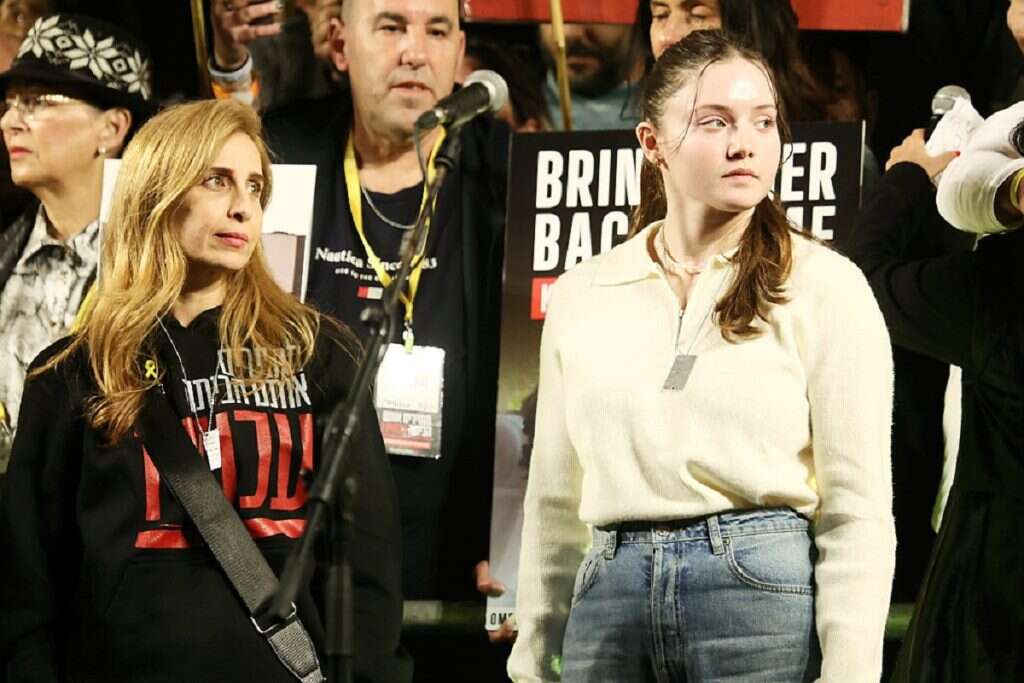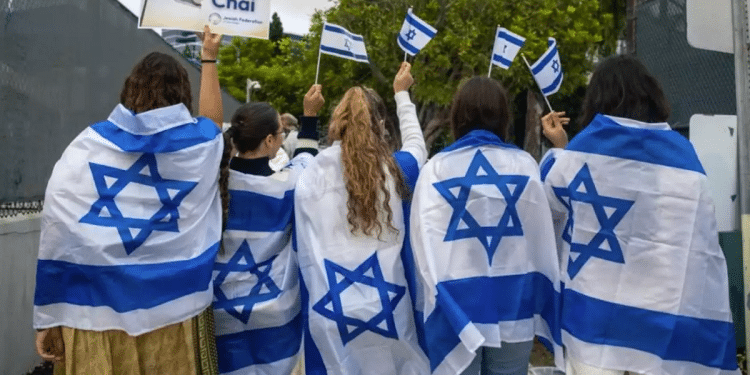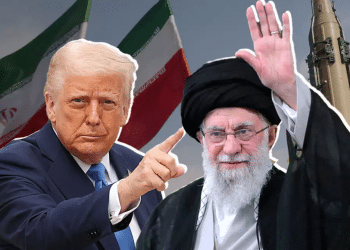In the year since October 7, 2023, the Jewish people have faced unprecedented challenges. The attack, which Doron Almog, Chairman of the Jewish Agency, calls "the Simchat Torah War," became a watershed moment that shook Israel and the Jewish world. In an exclusive interview, Almog reflects on the attack's devastating impact and offers hope for recovery.
Doron Almog stands as a prominent figure in Israeli society. A retired major general, social activist, and current Chairman of the Jewish Agency, his distinguished military career includes leading complex operations such as the Entebbe raid, where he was the first soldier to set foot on the airport tarmac. While his military service led to key positions including head of the Southern Command, it was his civilian work, particularly establishing the Aleh Negev-Nahalat Eran rehabilitation village for people with disabilities, that made him a symbol of dedication and service in Israeli society.
His appointment as Chairman of the Jewish Agency in August 2022 placed him at the helm of Israel-Diaspora relations during an exceptionally challenging period. "This role demands both broad vision and deep sensitivity," Almog said. "We face challenges unlike any we've seen before." Oct. 7, as we all witnessed, emerged as the most formidable challenge for Israelis and Jews worldwide in recent decades.
From joy to mourning
"This represents Israel's gravest crisis since the War of Independence and the Jewish people's most significant challenge since World War II," Almog said with visible pain. He described the haunting scene in Kibbutz Kfar Aza, where he found sukkahs with tables still set and white tablecloths in place – silent witnesses to the Jewish holiday celebrations that ended in tragedy. "We were preparing for celebration," he said quietly.
The Oct. 7 attacks, Almog acknowledged, represent "a catastrophic failure at every level," but he emphasized that alongside the tragedy emerged "an unprecedented mobilization of the Jewish people." Thousands flew to Israel for solidarity missions, volunteering, and military service. The first days saw more than $1 billion in donations – a record-breaking response.
The personal toll weighs heavily in Almog's words. He speaks of his brother, Eran, killed in the Yom Kippur War and left in the field for a week before recovery, and five family members lost in the 2003 Maxim restaurant bombing. "My family is no stranger to grief," he said.

During the brutal Hamas attack on Oct. 7, tragedy struck again when two of his family members were murdered and four were taken hostage. Hamas terrorists broke into the Goldstein-Almog family home in Kfar Aza, where Nadav and Chen had hidden with their four children. They killed Nadav and their eldest daughter Yam (20). The mother Chen and their three children – Agam (17), Gal (11), and Tal (9) – were later freed in a hostage exchange after 51 days in captivity.
"The pain runs deep," Almog said, "but we must press forward. When you hear Agam Goldstein-Almog speaking about returning to Kfar Aza, after watching her father and older sister murdered and enduring captivity – that shows extraordinary strength. This embodies 'in your blood, you shall live' [Ezekiel 16:6] – moving forward and rebuilding despite the devastating loss. Through compassion, generosity, and solidarity, we continue strengthening both our people and our nation.
"The residents of communities near Gaza have always stood firm in defending their homes – a commitment dating back to the 1950s after the murder of Roi Rotberg [whose murder by Gazans and Egyptian policeman in 1956 in kibbutz Nahal Oz shocked the nation]. Today we face the same challenge, and despite this horrific attack and its uncertain duration, we maintain our conviction in ultimate victory."
Almog shared a poignant conversation with John Polin, father of Hersh Goldberg-Polin, who was taken hostage and killed. "At the shiva, when Rachel, Hersh's mother, needed solitude and retreated to the house, I stayed with John. Holding his hand, I told him about my brother Eran, ho was killed in the Yom Kippur War – the reason behind my extended military service. I explained how our shared grief, our struggle with loss, becomes a wellspring of strength," he recounted. "We emerge stronger, more dedicated to our values and our homeland."
Building bridges, not walls
Since the war began, the Jewish Agency and its partners, particularly the Jewish Federations of North America and Keren Hayesod, have launched an unprecedented support effort for Israel's recovery. This includes emergency grants for thousands of families through the Fund for Victims of Terror, emergency loans and grants for businesses near Gaza and in the north, support for reserve soldiers, and organizing solidarity missions.
"Our rehabilitation work includes creating lasting partnerships between Jewish communities abroad and communities near Gaza," Almog explained. "This goes beyond financial support – we're building deep human connections that strengthen the entire Jewish people."
Almog views aliyah as a key driver of growth and central to national recovery. "Since the war began, we've welcomed tens of thousands of olim from dozens of countries, working alongside the Ministry of Aliyah and Integration," he reported. "We've seen a marked increase in aliyah applications from Western countries."
He emphasized the caliber of these newcomers: "These are young, mostly highly educated individuals with extraordinary determination." Almog notes their courage in choosing Israel despite the current challenges. "They're coming during our most dangerous period – facing missile attacks, threats to Israel's existence, confrontation on seven fronts, rising global antisemitism – yet they still come. This demonstrates the unbreakable bond between the Jewish people and Israel."
The situation for Jewish communities abroad presents complex challenges. While Almog acknowledges rising antisemitism, he views it through a historical lens. "Antisemitism has always existed in cycles. It either simmers low or boils high. Right now it's boiling, but this too shall pass," he offered with measured optimism.
Yet Almog points to the Jewish people's improved position compared to previous eras. "During World War II, we had no state. Six million Jews perished in the heart of Europe," he reflected. "Today, despite our challenges, we have a strong nation capable of self-defense."

The remarkable solidarity between diaspora Jewry and Israel carries special significance given that before the war, relations had reached a historic low point. "We had become complacent, telling ourselves that Israel's strength meant we could go it alone. Whether others chose to make aliyah or donate seemed irrelevant. We even discouraged talking about immigration."
He acknowledges this as a misguided approach, born of what he calls "excessive pride" and "hubris." Almog believes the war has fundamentally shifted this dynamic, highlighting the essential nature of diaspora relationships. "Our task now is to build bridges, not walls," he emphasizes.
"The Wall belongs to everyone"
Almog points to the Western Wall compromise plan as a critical example of bridging divides between Jewish denominations. He recalls an incident early in his tenure when a Reform bar mitzvah celebrant from the US faced harassment during his ceremony at the Wall.
"I reached out to the family via Zoom and emphasized that the Wall belongs to everyone," Almog said, stressing the need for "fostering a new culture of mutual respect, where we learn to embrace our differences while living together." He sees the Jewish Agency as vital to connecting diverse streams of global Judaism.
The hostage crisis remains at the forefront of Almog's and the Jewish Agency's efforts. "We're marshaling every resource to support the hostages' families and advance their return," he said. "This crisis touches every member of the Jewish people, both in Israel and worldwide."
Almog described deeply moving encounters with hostages' families and drew inspiration from their resilience. "They demonstrate extraordinary human spirit," he said. "Their struggle represents all of us." The Jewish Agency provides comprehensive support to these families, including psychological care, financial assistance, and international advocacy. "We're leveraging every connection to keep this crisis in the global spotlight," Almog said.
From the Chairman's perspective, the war also presents an opportunity to reconnect with younger Jews in the diaspora. He emphasizes the importance of honest, respectful dialogue on even the most challenging issues. "Disagreement is natural," he said. "What matters is maintaining open, respectful communication."
Throughout the conversation, Almog returned to the principle of "in your blood, you shall live" – the imperative to build and grow despite profound loss. "Every initiative we undertake must answer two questions: How does this strengthen the Jewish people? How does this build a better future? This gives practical meaning to 'in your blood, you shall live' today."
Despite current hardships, Almog maintains his optimism. "I draw hope from the remarkable spirit of renewal we're witnessing," he said. The Agency Chairman expressed confidence that the Jewish people will overcome this crisis as they have previous ones.
"These days, nearly every conversation with Jews abroad ends with 'Am Israel Chai' – 'The People of Israel Live.' What does this mean? I'm mortal, but Am Israel Chai – that's eternal."




